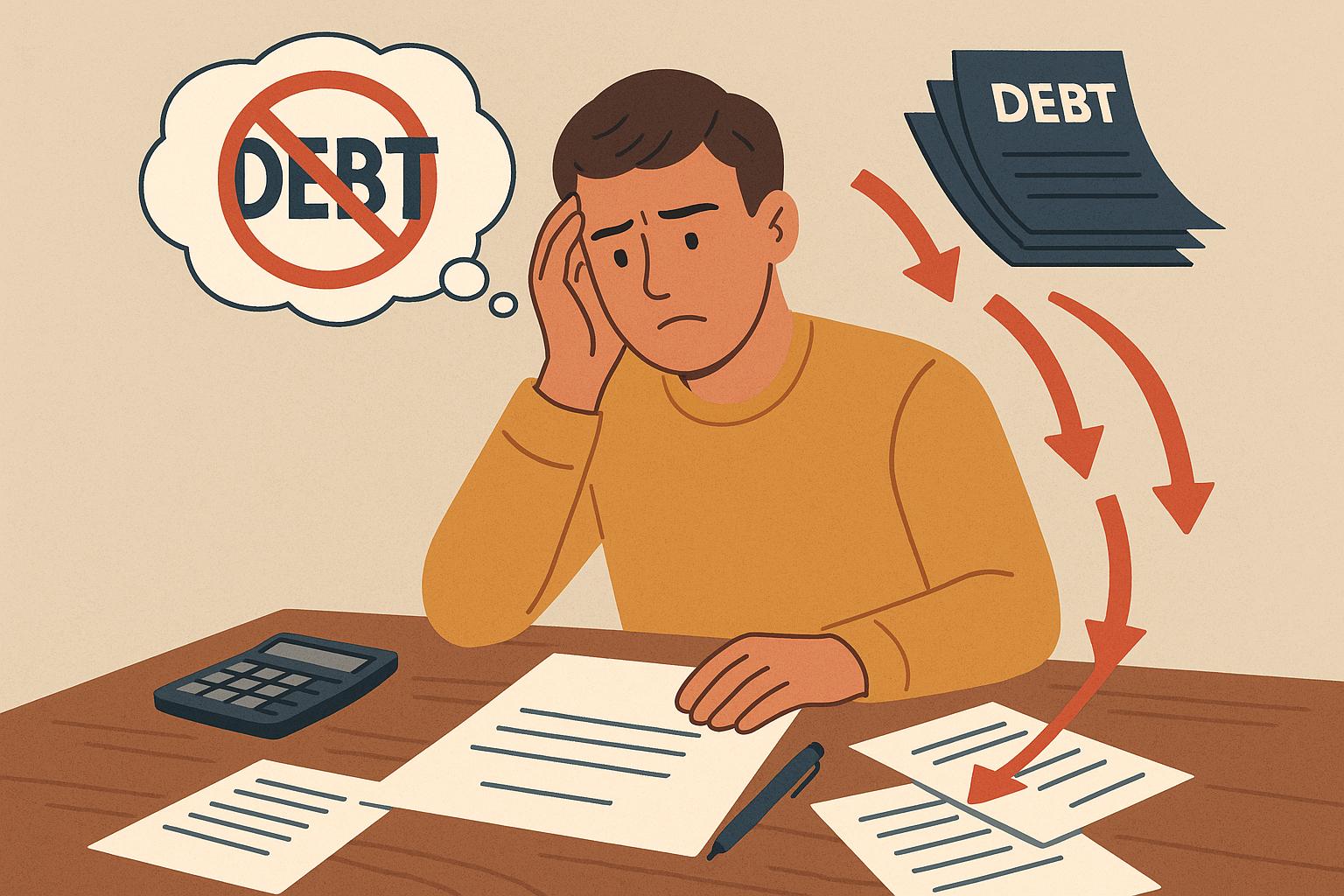Understanding Your Current Financial Situation
Before taking practical steps toward reducing debt, it is essential to have a clear understanding of your financial standing. This involves having a detailed picture of your debts, which encompasses not only the amount you owe but also the interest rates that apply to each debt. Furthermore, being aware of any upcoming payment deadlines is crucial. This information will form the foundation for your debt reduction strategy.
Start by compiling a comprehensive list of all your debts. This list should specify the creditors’ names and the outstanding balances for each account. Additionally, include the interest rates being charged and any other relevant terms, such as minimum monthly payments. By having this information at your fingertips, you can make informed decisions regarding which debts require priority in payment. With a clear understanding of your financial obligations, you can devise a more effective plan to alleviate debt while minimizing the risk of acquiring new debts.
Crafting a Realistic Budget
An indispensable part of managing and reducing debt is creating a budget that aligns with your income and expenses. A budget acts as a financial blueprint, guiding your spending decisions and ensuring you live within your means. Start by identifying all sources of income, including your regular salary, any freelance work, or passive income.
Next, categorize your expenses into two main groups: essentials and non-essentials. Essentials include obligations such as your rent or mortgage, utilities, groceries, and necessary transportation costs. Debt payments should also fall under this category. Non-essential expenses cover things that provide comfort and entertainment, like dining out, subscription services, and hobby-related expenditures.
The primary aim of this exercise is to identify where cutbacks are possible. Analyze each category to find opportunities for savings. Spending less on non-essential items can free up funds that can be redirected towards debt payments, expediting the debt reduction process. By adhering to a well-structured budget, you can manage your money better, reduce debts significantly over time, and potentially increase your savings.
Tracking Expenses
The initial creation of a budget is only part of the equation. For it to succeed, it’s essential to track your expenses regularly. Utilize tools like spreadsheets or financial apps designed for personal budgeting. These resources can automatically categorize expenses, allowing you to see spending patterns over time.
Regular tracking helps to put your financial habits into perspective. It reveals potential spending leaks or patterns that might be leading you away from your financial goals. For instance, frequent small purchases may seem trivial but can add up significantly over a month. By being keenly aware of where each dollar goes, you can make necessary adjustments to stay within your budget and avoid unnecessary debt. Informed spending decisions arise from constant vigilance and thoughtful tracking.
Establishing an Emergency Fund
While focusing on debt reduction, it’s also important to prepare for unexpected financial hurdles. This is where an emergency fund comes into play. An emergency fund acts as a financial cushion, safeguarding against unforeseen expenses such as medical emergencies, urgent home repairs, or vehicle breakdowns.
To establish an emergency fund, start small by setting aside a pre-determined amount regularly. Aiming for three to six months’ worth of living expenses is a common goal, though even a modest emergency fund is better than none at all. This fund acts as a safety net, preventing the need to resort to credit cards or loans that could deepen debt. Having an emergency fund also brings peace of mind, knowing that you are better prepared for whatever life might throw at you.
Limiting Credit Card Usage
Credit cards are beneficial tools when used wisely, but they can also lead to financial pitfalls if not managed properly. To prevent accumulating more debt, consider limiting the use of credit cards for your purchases. Opt instead for using cash or a debit card, which requires spending money that you already possess, thereby avoiding the risk of overspending.
Another practical step is removing stored credit card information from online shopping accounts. This measure can serve as a deterrent to impulsive buying, making the purchase process a bit less convenient and encouraging more deliberate spending decisions. By fostering these habits, you can curtail reliance on credit cards and keep your financial health in check.
Using Alternatives to Credit
In addition to limiting credit card use, exploring alternative payment methods can shift your financial habits toward healthier choices. Prepaid cards, for instance, allow you to spend only what you’ve preloaded, eliminating the risk of overdrawing. Another option is using buy now, pay later services, which often offer interest-free financing for a set period. However, it is essential to exercise caution and ensure timely payments to avoid penalties or interest charges.
Increasing Income
Diversifying and increasing your income streams can significantly accelerate the debt reduction process. There are several ways to approach this. Consider taking on part-time work or seeking freelance opportunities in your area of skill. If you have unused items around your home, selling them online or at local marketplaces can also bring in additional revenue.
For myriad individuals, monetizing a hobby presents an enjoyable way to generate extra funds. Whether you have a talent for crafts, writing, or photography, there are often ways to transform these skills into a profitable side business. The additional income not only helps in clearing off debts but also reduces the likelihood of new debts accumulating, paving the way for improved financial stability.
Communicating with Creditors
Open, proactive communication with creditors can yield positive outcomes, especially during financial struggles. If meeting payment obligations becomes challenging, contacting your creditors can sometimes lead to mutually beneficial solutions. They might offer options such as reduced interest rates, adjusted payment plans, or even temporary payment deferrals.
Such adjustments can lighten your financial load and offer breathing room to reorganize your payment strategy. Initiating these conversations earlier rather than later can help prevent penalties or late fees, which only add to the existing debt. By maintaining open lines of communication, tensions can be eased, and more effective debt management strategies can be established.
Seeking Professional Guidance
For those feeling overwhelmed by the complexities of debt management, seeking help from financial professionals might be the best course of action. Credit counseling services provide senior guidance and can assist in constructing personalized plans that address individual debt concerns. It’s crucial, however, to ensure that these services come from a reputable agency, providing legitimate solutions to help regain financial control.
A certified credit counselor can offer an objective viewpoint and suggest strategies you might not have considered. These professionals often have experience negotiating with creditors and can represent your interests effectively. Whether you’re struggling to create a sustainable budget or need help devising a comprehensive debt repayment plan, professional guidance can be a transformative resource.
Remaining Committed to Financial Goals
Commitment is a cornerstone of successful debt management and financial restructuring. Establishing clear, attainable financial goals is the first step, but staying dedicated to those goals requires consistent effort. Regularly reviewing and adjusting your budget can keep it relevant and effective. Tracking progress and celebrating small milestones injects motivation into the process, reinforcing the positive financial habits being developed.
Maintaining a focus on long-term objectives facilitates a mindset that prioritizes financial health and growth. As debts diminish and financial discipline strengthens, the potential for accumulating new debts diminishes significantly. Through perseverance and dedication, the path to financial freedom becomes clearer and within reach.


